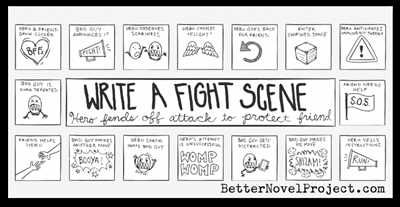
Are you an aspiring writer? Do you dream of crafting gripping stories that will captivate readers from the very first page? If so, then you’re in luck. In this article, we will explore some tips and strategies to help you get started on your novel writing journey. Whether you’re a seasoned writer or brand new to the craft, there’s something here for everyone.
One of the first things you need to do when starting a novel is to create a strong opening line. As Owen Lethem once said, “The first line of a novel is the line that draws the reader in and makes them want to read the whole thing.” So, how do you create the perfect opening line? It’s a combination of art and instinct. You need to find that one phrase or sentence that encapsulates the essence of your story and compels the reader to keep turning the pages.
Of course, creating a captivating opening line is only the beginning. You also need to think about your characters. Who are they? What drives them? What are their hopes, dreams, and fears? Building complex and relatable characters is crucial to any successful novel. They need to feel like real people, with unique personalities and motivations. Take the time to really get to know your characters and let them guide you through the story.
Another important aspect to consider when starting a novel is the setting. Where does your story take place? Is it a bustling city, a remote fortress, or a quiet seaside town? The location can have a significant impact on the tone and atmosphere of your story. It sets the stage for your characters and provides a sense of time and place. So, take the time to carefully craft your setting and make it an integral part of your story.
Once you’ve set the stage and developed your characters, it’s time to start writing. Don’t worry about making it perfect right away. Your first draft is just that – a draft. It’s an opportunity to get your ideas down on paper and see where they take you. As E.L. Doctorow famously said, “Writing is like driving at night in the fog. You can only see as far as your headlights, but you can make the whole trip that way.” So, don’t be afraid to start writing and see where the journey takes you.
As you write, remember that there are no hard and fast rules. Writing is an art, and each writer has their own unique style and voice. What works for one person may not work for another. So, experiment with different techniques and find what resonates with you. Trust your instincts and believe in your own creative vision.
Finally, don’t be afraid to share your work with others. Getting feedback from trusted friends, family, or writing groups can be incredibly valuable. They can provide fresh perspectives and help you identify areas for improvement. Remember that writing is a solitary pursuit, but sharing your work is an essential part of the process.
In conclusion, starting a novel can be a daunting task, but with the right tips and strategies, you’ll be well on your way to crafting a compelling story. So, take a deep breath, open your mind, and let your imagination run wild. The world is waiting to hear your story.
News for Authors
Being an author is a journey that many dream of, but only a few have the courage and perseverance to embark on. For years, we’ve been captivated by the stories and characters that writers have created. It’s a truly great art form that draws readers into a world of words, where the possibilities are endless.
If you’re thinking about becoming an author, there are a few things you should know. The first thing is that it’s not as easy as it might seem. Writing a novel takes time, effort, and a lot of revisions. It might even feel like you’re trapped in a fortress of solitude, with only your thoughts and ideas to keep you company.
But don’t despair! There are some tips and tricks that can help you on your journey. One of the most crucial things is to actually start writing. It can be easy to get caught up in the planning and thinking, but nothing will ever happen if you don’t put pen to paper (or fingers to keyboard).
Set a regular writing schedule and stick to it. Treat it like a job, even if you still have a day job at the office. You need to make time for your passion, even if it’s just a few hours a week. The more you write, the better you will become.
Another important thing to remember is that your first draft doesn’t have to be perfect. In fact, it probably won’t be. The most important thing is to get your ideas down on paper and worry about polishing them later. As Jonathan Lethem once said, “The first draft is the declaration of independence from your doubts.”
Don’t be afraid to share your work with others. Join a writing group or find a beta reader who can provide feedback. It can be scary to let someone else read your words, but their responses can be invaluable in helping you improve.
When it comes to the actual writing, there are a few things to keep in mind. One is to always show, not tell. Instead of simply stating that a character is sad, show their sadness through their actions and dialogue. This will make the scene feel more real and allow the reader to connect with the character.
Another thing to remember is that every scene and every line should serve a purpose. Cut anything that doesn’t move the story forward or reveal something important about the characters. Remember, readers have limited time and attention spans, so make every word count.
As American author Robert McKee once said, “Storytelling is the most powerful way to put ideas into the world today.” So, embrace the power of storytelling and use your words to create something truly great.
In today’s times, with movies and the internet, reading has become somewhat of a lost art. But there are still readers out there who long for a good book to escape into. And it’s up to us, the authors, to provide them with that escape.
So, if you have a story to tell, go for it! Start writing, put in the time and effort, and believe in yourself. Because in the end, the only person who can truly tell your story is you.
As they say, “The journey of a thousand pages begins with a single word.” So let’s get started!
1 Set aside proper regular time to write
In order to begin your novel, it’s important to build a habit of writing and set aside regular time for it. The truth is, writing a novel is a commitment and requires dedication. You need to make it a priority and schedule specific time for writing, just like any other important task in your life.
Jonathan knew this firsthand. He used to think that he would be able to write whenever he found a spare moment, even if it was just a few minutes here and there. But he quickly realized that wasn’t enough. In order to truly make progress on his novel, he needed to allocate a dedicated block of time where he could completely focus on his writing. He wanted to create a fortress of solitude, a place where he could escape into his story and immerse himself in the world of his characters.
Jonathan found that the best time for him to write was in the afternoon, after he had taken care of his other responsibilities for the day. He would find a quiet corner in his office or a cozy spot in a coffee shop, and there he would open his laptop and start typing away, letting the words flow onto the page.
And indeed, finding that dedicated writing time made a world of difference for Jonathan. He was able to make consistent progress on his novel, slowly adding to his story day by day. He realized that it wasn’t only about finding the time to write, but also about establishing a routine. By making writing a regular part of his day, he was able to keep the story fresh in his mind and stay connected to his characters and the world he was creating.
Jonathan’s experience is a great example for aspiring writers. In order to start your novel, it’s important to establish a regular writing schedule. Whether it’s early in the morning or late at night, find a time that works best for you and stick to it. Make it a non-negotiable commitment, just like going to work or taking care of your children’s needs.
By setting aside proper and regular time to write, you’re not only investing in your novel’s success, but also in your growth as a writer. You’ll find that the more you practice and develop your craft, the better your writing will become.
So don’t wait for the perfect conditions or for inspiration to strike. Start somewhere, even if it’s just a few words on the page. Remember, the first draft is just a placeholder, and you can always go back and revise and edit later. The most important thing is to get the story out of your head and onto the page.
And if you’re worried about not knowing where to begin or how to start, don’t be. There’s no right or wrong way to write a novel. Just like every reader’s taste is different, every writer’s process is unique. What works for one person may not work for another.
Some writers like to outline and plan every scene and character before they begin writing, while others prefer to dive right in and let the story unfold naturally. Some writers find inspiration from books, movies, or real-life events, while others rely solely on their imagination.
So, there’s no need to worry about finding the perfect formula or following a strict guide. The most important thing is to find what works for you and embrace your own process. Trust yourself and your writing instincts.
Remember, the journey of writing a novel is a long one. It takes time and perseverance. But by setting aside proper regular time to write, you’re taking the first step towards bringing your story to life and sharing it with the world.
Put a character in a setting
When it comes to beginning your novel, one of the most important guidelines is to put a character in a setting. This is the opening scene of your story, the part that hooks your readers and draws them into your world. Just like in movies, the opening scene sets the tone and grabs the attention of your audience.
Think about some of your favorite novels or movies. What do they have in common? They all have a strong opening scene that immediately pulls you in and makes you want to keep reading or watching. The same holds true for your novel.
So, how do you go about putting a character in a setting? It’s actually quite simple. Let’s use an example to illustrate:
- It’s 6 o’clock in the afternoon. The office is bustling with activity as people hurry to finish their work for the day.
- Mingus, a regular at the office, sits at his desk, staring at the clock. He knows that once the clock strikes 6, he’s free to leave and begin his real work – writing.
- As he packs up his belongings, Mingus replays the conversation he had with his colleagues earlier. They were talking about a recent news story about violence in the city.
- It’s been a few years since Mingus published his last novel, and he can feel the pressure building. He needs to come up with a great opening for his new book, something that will hook readers from the first page.
- He grabs his coat and steps outside, taking in the sights and sounds of the bustling city. Mingus has always drawn inspiration from his surroundings, so he walks to a nearby park to clear his head.
- As he sits on a bench, he watches children playing and imagines a story unfolding in his mind. The park becomes the perfect setting for his new novel.
In this particular example, the opening scene sets the stage for Mingus, an aspiring author, to start writing his next novel. We get a sense of his surroundings, his thoughts, and his motivations. This is just a placeholder, of course, but it gives you an idea of how to build an opening scene.
By putting your character in a setting, you’re able to create a sense of place and draw your readers in. It’s a way to share the world of your story with them and make them feel like they’re a part of it. The opening scene is the perfect opportunity to set the tone for your novel and get readers hooked right from the start.
So, the next time you sit down to begin your novel, remember to put a character in a setting. Take the time to think about where your story takes place, what the characters are doing, and what draws your readers in. By following these guidelines, you’ll be well on your way to creating a captivating opening that keeps your readers turning the pages.
What is your novel’s setting or world
When starting a novel, one of the first things to consider is the setting or world in which your story takes place. The setting plays a crucial role in establishing the mood, atmosphere, and overall tone of your novel. It provides the backdrop for your characters and the events that unfold throughout the story.
As writers, we’ve all experienced the feeling of being completely hooked by a novel’s setting. Whether it’s a vividly described post-apocalyptic wasteland, a bustling cityscape filled with clockwork gadgets, or a sleepy small town with a dark secret, a well-crafted setting can transport readers to a different time, place, or even reality.
In his novel, “The Road,” Cormac McCarthy creates a hauntingly beautiful yet devastated world in which a father and son struggle to survive. The desolate landscapes and constant sense of danger build an atmosphere of despair and hopelessness, making it impossible to put the book down.
On the other hand, Ernest Hemingway’s “The Old Man and the Sea” takes readers on a journey to the vastness of the sea. The setting of the ocean, with its endless waves and unpredictability, reflects the protagonist’s internal struggle and the themes of isolation and perseverance.
When thinking about your own novel’s setting, consider what you want to convey to the reader. Do you want to create a sense of awe and wonder, like Tolkien’s Middle-earth? Or do you want to portray a gritty and realistic world, like George Orwell’s dystopian society in “1984”?
A good way to start is by writing a synopsis or a placeholder for your novel’s setting. Describe the key elements such as time, place, atmosphere, and any unique features that make it stand out. For example:
- A small, sleepy town in New England where strange occurrences happen after dark
- A futuristic city where mind-altering technology is the norm and violence lurks around every corner
- A remote island where a group of strangers find themselves trapped during a supernatural event
Once you have a general idea of your setting, it’s time to delve deeper. Start by brainstorming the key locations within your world. Is there a particular street or building that plays a significant role in the story? What is the landscape like? Is it a sprawling metropolis, a dense forest, or a vast desert?
Consider the time period of your story. Is it set in the present day, the future, or the past? Each time period has its own unique characteristics that can influence the setting and the overall feel of your novel.
The more details you can capture about your setting, the better. Think about the sights, sounds, smells, and even tastes that your characters would experience in their environment. These sensory details can make the setting come alive and immerse the reader in your world.
Remember, the setting goes hand in hand with the characters and the plot of your novel. It should serve as a backdrop for the story without overwhelming it. Rather than simply describing the setting in a static way, let it interact with the characters and the events that unfold.
For example, instead of having a character sit in a boring office, why not have them gaze out of the window and daydream about the adventures they wish they could be having? Instead of a simple funeral scene, describe the mourners’ expressions, the way the rain falls on the gravestones, and the sense of loss hanging in the air.
Finally, don’t be afraid to think outside the box. Sometimes the most compelling settings are ones that don’t exist in the real world. Have you ever read a novel where a completely new world was built from scratch? Or a story set in a twisted version of our own reality?
When it comes to setting, the possibilities are endless. So go ahead and let your imagination run wild. Create a world that will captivate your readers and keep them turning the pages, eager to see what lies around the next corner.
Capture your readers’ attention
When it comes to writing a novel, one of the most important things an author needs to achieve is capturing their readers’ attention from the very beginning. The opening lines of a book are crucial in enticing readers to keep turning the pages and delve into the story you’ve created. But how can you create an opening that draws readers in and keeps them hooked? Here are a few tips to help you capture your readers’ attention:
- Create a compelling setting: The setting of your story is the first thing readers will encounter, so make sure it’s vivid and interesting. Whether you’re writing about a mysterious fortress or a bustling city, the setting should give readers a sense of place and draw them into the world you’ve created.
- Start with action: Instead of beginning your novel with a lengthy description or background information, dive right into the action. A gripping opening scene or an intriguing event will immediately pique readers’ curiosity and make them want to know more.
- Introduce an interesting character: The protagonist of your story plays a crucial role in capturing readers’ attention. Introduce a character that readers can connect with or find compelling. Give them a reason to care about the character’s journey and what happens to them.
- Create suspense: Keep readers on the edge of their seats by building suspense from the very first page. Pose intriguing questions or create a sense of mystery that readers can’t resist. Make them want to know what happens next.
- Use strong and engaging language: Your choice of words can make a big difference in capturing readers’ attention. Use powerful and descriptive language that paints a vivid picture in readers’ minds. Avoid clichés and take the time to craft each sentence carefully.
- Provide a glimpse of what’s to come: Give readers a taste of what they can expect from your novel. Provide a brief synopsis or hint at the conflicts and challenges that lie ahead for your characters. This will create anticipation and make readers eager to explore the story further.
Remember, capturing your readers’ attention is essential for keeping them engaged throughout your novel. Take the time to craft a compelling opening that draws readers in and leaves them eager to continue the journey you’ve created. With these tips and examples from renowned authors like Jonathan Lethem, Owen Egerton, and many more, you’ll be able to hook your readers from the very first page and keep them invested until the very end.
Example Fortress of Solitude Jonathan Lethem
If you ask someone to name a great American novel, Jonathan Lethem’s “The Fortress of Solitude” is likely to be one of the responses you’ll get. Set in the world of 1970s Brooklyn, the novel draws upon Lethem’s own experiences growing up in the city, creating a vivid and compelling story that hooks readers from the very first page.
In the novel, Lethem takes us on a journey through the lives of two boys, Dylan Ebdus and Mingus Rude, as they navigate the challenges of adolescence and the changing landscapes of their neighborhood. The characters are richly drawn, and Lethem’s prose is able to capture both the specific details of their lives and the universal experiences that resonate with readers.
One of the most crucial parts of any novel is the opening scene, and Lethem knows how to create a compelling hook. The novel begins with a quote from Ralph Waldo Emerson, “The God’s Meanest Clerk,” which sets the tone for the rest of the story. From there, Lethem builds a world that is both familiar and strange, taking readers on a journey that is both familiar and unexpected.
Throughout the novel, Lethem uses his unique style to keep readers hooked. He knows how to give just enough information to keep us guessing, and he knows when to let the story take a back seat to the characters and their relationships. The result is a piece of fiction that is both deeply personal and universally relatable.
While “The Fortress of Solitude” is set in a particular time and place, its themes and ideas are timeless. Lethem explores issues of race, identity, and the nature of power, all while telling a story that is both entertaining and thought-provoking. It’s a novel that will stay with you long after you’ve finished reading.
Jonathan Lethem has been writing novels for over twenty-five years, and “The Fortress of Solitude” is widely regarded as one of his best works. It’s a novel that shows just how far Lethem has come as a writer, and it’s a testament to his ability to create complex and compelling characters.
So if you’re looking for a novel that will transport you to a different time and place, look no further than “The Fortress of Solitude” by Jonathan Lethem. It’s a novel that will challenge your perceptions of reality and leave you thinking about its themes long after you’ve turned the last page.









